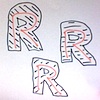Doodle Delivery – Subscribe!
Subscribe to occasionally brighten your inbox with a bundle of doodles wrapped in a few thoughtful thoughts on being a beacon in this crazy-wonderful world.Search
Left Brain + Right Brain = My Blog
This blog is chock full of joyful drawings and a few musings on personal branding, startups, creativity and being a beacon.
Featured Posts






The Be A Beacon Show
Send a Free eCard
If the drawings on this website give you a smile why not share one? I added a free ecard system so you can send "doodlegrams" to anyone you'd like. Go ahead, send a smile! Just click on the words eCard (free) below any doodle on the blog .
Categories
- art
- Barcamp Atlanta
- Be A Beacon
- Bibliography
- blogging
- branding
- Branding Thoughts
- change
- commentary
- context
- creativity
- customers
- Doodles
- ecard
- entrepreneurs
- Etsy
- for sale as print
- friends
- futurism
- Georgia
- ibal
- In the Moment
- inspiration
- Instagram Photos
- link
- Live event
- logo
- love
- mad scribblings
- money doodle
- naming
- networking
- nofoto
- Other Interests
- personal branding
- php
- podcast
- quotes
- social media
- TAG
- thanks
- Thought for the day
- tools
- trust
- video
- Workshops
-
Archives
- November 2021
- October 2021
- September 2021
- August 2021
- July 2021
- June 2021
- May 2021
- April 2021
- March 2021
- February 2021
- January 2021
- December 2020
- November 2020
- October 2020
- September 2020
- August 2020
- July 2020
- June 2020
- May 2020
- April 2020
- March 2020
- February 2020
- January 2020
- December 2019
- November 2019
- October 2019
- September 2019
- August 2019
- July 2019
- June 2019
- May 2019
- April 2019
- March 2019
- February 2019
- January 2019
- December 2018
- November 2018
- October 2018
- September 2018
- August 2018
- July 2018
- June 2018
- May 2018
- April 2018
- March 2018
- February 2018
- January 2018
- December 2017
- November 2017
- October 2017
- September 2017
- August 2017
- July 2017
- June 2017
- May 2017
- April 2017
- March 2017
- February 2017
- January 2017
- December 2016
- November 2016
- October 2016
- September 2016
- August 2016
- July 2016
- June 2016
- May 2016
- April 2016
- March 2016
- February 2016
- January 2016
- December 2015
- November 2015
- October 2015
- September 2015
- August 2015
- July 2015
- June 2015
- May 2015
- April 2015
- March 2015
- February 2015
- January 2015
- December 2014
- November 2014
- October 2014
- September 2014
- August 2014
- July 2014
- June 2014
- May 2014
- April 2014
- March 2014
- February 2014
- January 2014
- December 2013
- November 2013
- October 2013
- September 2013
- August 2013
- July 2013
- May 2013
- April 2013
- March 2013
- February 2013
- January 2013
- December 2012
- November 2012
- October 2012
- September 2012
- August 2012
- July 2012
- June 2012
- May 2012
- April 2012
- March 2012
- February 2012
- January 2012
- December 2011
- November 2011
- October 2011
- September 2011
- August 2011
- July 2011
- June 2011
- May 2011
- April 2011
- March 2011
- January 2011
- December 2010
- November 2010
- October 2010
- September 2010
- August 2010
- June 2010
- May 2010
- April 2010
- March 2010
- February 2010
- January 2010
- December 2009
- November 2009
- October 2009
- August 2009
- July 2009
- June 2009
- May 2009
- March 2009
- February 2009
- December 2008
- November 2008
- October 2008
- September 2008
- August 2008
- July 2008
- June 2008
- May 2008
- April 2008
- March 2008
- February 2008
- January 2008
- December 2007
- November 2007
- October 2007
- September 2007
- August 2007
- June 2007
- May 2007
Equation Arts – Site Menu
Weekly Podcast
Contact
Equation Arts, LLC
342 Marietta St. NW
Suite 6
Atlanta, GA 30313
sales@equationarts.com
404-492-9818-
New Posts & Doodles
- Instagram Video November 05, 2021 at 04:40PM
- Congratulations Braves! Seemed like a good day to repost this one I made for a promotion Xfinity did with the Braves back in 2018. #hugatmebro #bunny #baseball #atlantabraves #gobraves #xfinity #bunt #worldseries2021
- Imagine Them In Their Underwear The fear of reciting Words written to be read How can one hope to serve That Voice, pure in one’s head? Awkwardly warbling Merely parroting life The hubris of speaking One’s truth: love or strife Be kind to the poet At the mic, blushing bird Tasting tin on the tongue Risking all to be heard ___ 2021-10-05 By Doodleslice #poem #poetsofig #poetrycommunity #poets #poetryrecital #fearofcrowds #fearofpublicspeaking #doodleslice #poetrylovers #ilovepoetry




Barcamp 2 – more from Friday night
Gave my talk on branding for startups. Discussed the Three R’s of branding and some of the particular issues of note for a young company trying to get established in an Internet driven economy.
Then I went late to a talk on the Erlang programming language. It was standing room only so live-blogging wasn’t practical. Cool talk though. The big idea here: Erlang is massively scalable! The rest was over my head 🙂
Now I’m in a talk on Bayesian algorithms for filtering – two groups combined for this talk, one interested in Bayesian analysis the other in AI and cognition (with a futurist spin). Thought this would be a more philosophical discussion because of the AI, but the Bayesians have numbers on their side so the talk is getting into logic and algorithms. Spam filtering is a popular problem for applying the power of Bayesian. Basically by recognizing user behaviors and aggregating behaviors across users and then create probabilities for saving and for scrubbing any particular message. So Bayesian calculations get the probablities that score likelihood of scrub and likelihood of save. Then another algorithm has to look at the balance between the scores to determine the final save/scrub decision. The goal is to have a system that continues to learn over time to get better over time. Surprise issue – you don’t want the system to learn too fast! If it does the system can develop biases that might move you away from desirable result. Learning at the right pace allows the system to aggregate enough scores to have more relevant outcomes.
What does this have to do with branding? As I mentioned an hour or so ago, I’m indulging my nerdy roots and hanging out at Barcamp Atlanta. The technology is driving everything these days. And I believe in the long run these technologies will influence marketing and buying behaviors, just like the web has.
Moderating is discussing filtering large data sets – question now about qualifying market data as another use case. Bayesian is good at putting info into buckets. Not as good for mathematical evaluation.
Could you use Bayesian to create real estate recomendations? Start learning behavior for a home buyer? Could the home buyer train the system fast enough to make it useful infiltering a databse of 100000 homes? (questions from Alan Pinstein) The experts say yes, this is a good application for Bayesian approach.
Conversation is moving to relevance engines, but it is 10pm so time to change rooms.